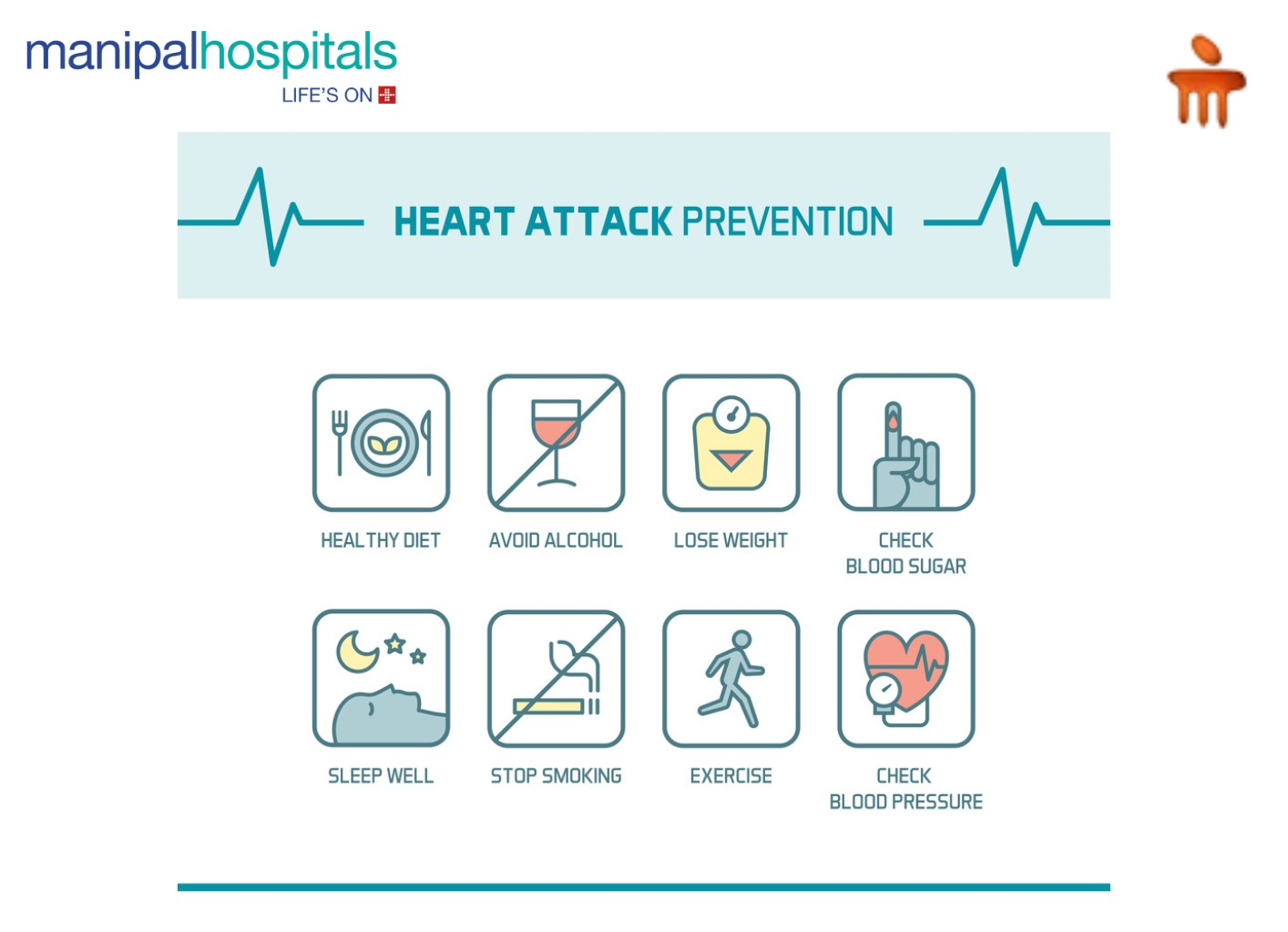.png)
A medical emergency never rings the doorbell. A serious illness or medical trauma might manifest in the most unexpected way. Experienced clinical intervention may be temporarily unavailable during that period. Therefore, it is important that regular people understand how to handle emergencies like heart attacks. According to the Centres for Disease Control and Prevention (CDC), around 697,000 fatalities per year are caused by heart-related causes, including heart attacks and stroke. This accounts for around 1 in every 5 deaths. Therefore, being able to administer first aid during a heart attack can save lives.
A heart attack occurs when the blood supply to a portion of the heart is cut off. Early identification of cardiac disease helps in heart attack prevention. This blog provides information regarding heart attack first aid mainly involving prevention and precautionary tips for heart pain.
Visit a top heart hospital in Goa if you want a consultation on heart attack prevention.

How to Prevent a Heart Attack?
It is possible to prevent heart attacks by adopting a healthy lifestyle, taking medications as prescribed, and scheduling routine heart exams. A heart-healthy diet can help prevent heart attacks. The following diet modifications are recommended for a healthy heart:
-
Consumption of fish: Omega-3 fatty acids, protein, and other nutrients found in fish lower the risk of heart disease.
-
Consumption of more beans, whole grains, fruits, and vegetables since plant-based foods can help fight heart disease.
-
Avoiding artificial trans fats completely. Fast food, frozen pizza, bakery goods, and other items increase "bad" (LDL) cholesterol levels.
-
One should limit calorie consumption to 7%–10% saturated fat. Eating packaged food should be completely avoided.
-
It is recommended to increase the intake of protein-rich foods including fish, chicken (without the skin), lean cuts of meat, low-fat or fat-free dairy, nuts, beans, tofu, and lentils.
-
Reducing salt intake to help manage blood pressure.
A heart attack preventive diet can go a long way towards keeping a healthy heart. It is also recommended to follow the healthy heart attack prevention guidelines of exercising, eating the appropriate foods, and getting frequent check-ups.
Precaution Tips Against Heart Attack
Heart attacks and heart-related diseases can be avoided by leading a healthy lifestyle. Here are a few heart attack precaution tips to help avoid a heart attack. A healthy lifestyle modification lowers the risk of developing heart attacks and heart-related diseases. Let us look at some simple lifestyle adjustments that can help prevent heart attacks:
-
Quit smoking
-
Regular monitoring and control of the cholesterol level.
-
Controlling the blood pressure level.
-
Exercising regularly to be physically fit.
-
Losing extra weight
-
Choosing a heart-healthy diet with healthy lifestyle modifications.
-
Getting an appropriate amount of sleep.
-
Managing stress levels
-
Controlling blood sugar levels.
Consult a cardiologist if you want to learn more about how to avoid heart disease.
Frequently Asked Questions (FAQs)
1. What are the ways to prevent heart attack?
It is possible to prevent heart attacks by adopting a healthy lifestyle, taking medications as prescribed, and scheduling routine heart exams. A heart-healthy diet can help prevent heart attacks.
-
Consumption of fish
-
Consumption of more beans, whole grains, fruits, and vegetables since plant-based foods can help fight heart disease.
-
Avoid artificial trans fats completely.
-
Limit the calorie consumption from saturated fat.
-
Increase the intake of protein-rich foods including fish, chicken (without the skin), lean cuts of meat, low-fat or fat-free dairy, nuts, beans, tofu, and lentils.
-
Reduce salt intake to help manage blood pressure.
2. What are the signs of a heart attack?
Heart attack symptoms can vary, with some cases being sudden and intense, while others start gradually with mild discomfort. The symptoms may include:
-
A sensation of heaviness or pain in the chest, arm, or below the breastbone.
-
Discomfort that radiates to the back, jaw, throat, or arm.
-
Cold sweat, nausea, vomiting, or dizziness.
-
Shortness of breath.
3. What are the ways to keep the heart healthy?
Some important steps taken to keep the heart healthy include:
-
Intake of green vegetables, fruits, whole grains, fat-free or low-fat dairy, protein-rich foods, etc.
-
Monitoring body weight
-
Remain active
-
Quit smoking
-
Avoid stress
4. What precautions need to be taken to prevent a heart attack?
Some precautions that need to be taken for heart attack prevention include:
-
Quit smoking
-
Regular monitoring and control of the cholesterol level.
-
Control the blood pressure level
-
Regular exercise
-
Loose extra weights
-
Choose a heart-healthy diet.
-
Get appropriate sleep
-
Manage stress level
-
Control blood sugar level



















 4 Min Read
4 Min Read



12.png)










